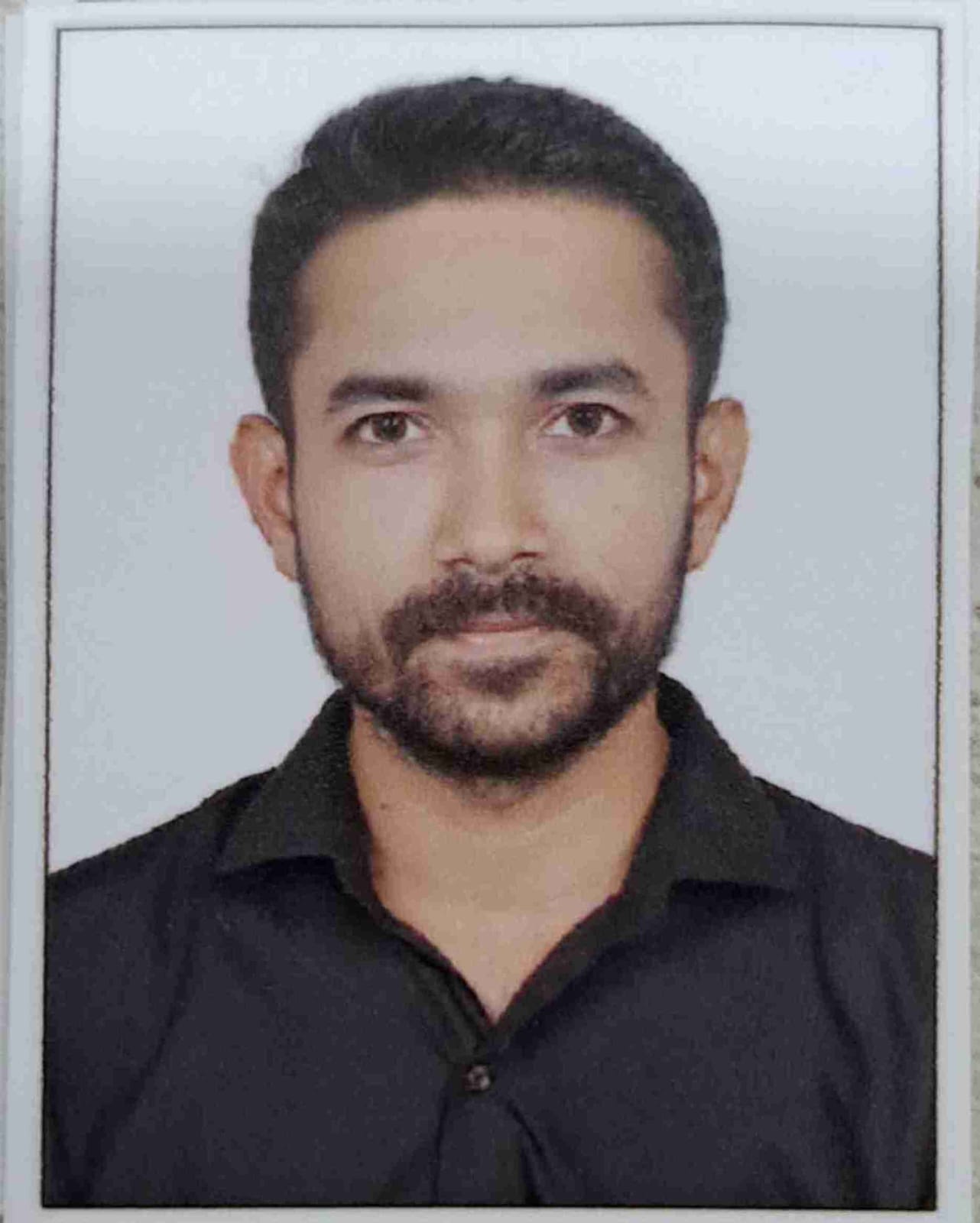- Home
- Engineering Training Programs
- Piping Engineering
Piping Engineering
Piping Engineering course is one-of-a-kind. This course is structured to raise
the level of expertise in piping design and to improve the competitiveness
in the global markets.
- Competent Trainer with more than 20+ years’ experience from Engineering Field
- More than 100 recruiters for Piping Engineering
- 100% Placement assistance
- Trained around 12000 piping engineers in the last 20 years
- Hands on experience to work on live projects
- Exposure to working culture of Engineering, Procurement and Construction Companies.
- Through Knowledge provided to understand the project activities.
- Introduction of interactive methods within the departments.
- Understand of Deliverables to function smoothly and quality output.
- Understand of Deliverables to function smoothly and quality output.
- Acquire the knowledge of Advance technologies used currently.
- Enrich the knowledge of International codes and standards for perfection in design.
- Enhance the knowledge of Current engineering practices used.
- Training in Personal Development to enhance the communication skills.
Piping engineering is a specialized field within the broader discipline of mechanical engineering that focuses on the design, analysis, and layout of piping systems. Piping engineering ensures the design and implementation of efficient and safe piping systems. Piping engineers consider factors such as fluid flow, pressure, temperature, and material compatibility to design piping systems that can transport fluids and gases effectively. This leads to optimized system performance, reduced energy consumption, and enhanced safety.
piping engineering provides several benefits, including the efficient and safe design of piping systems, compliance with codes and standards, proper material selection, optimal piping layout, stress analysis for structural integrity, cost optimization, integration with other disciplines, risk mitigation and safety, and career opportunities. These benefits contribute to the reliable operation, safety, and cost-effectiveness of piping systems in various industries.
Fresh/ Experienced, Diploma/ Degree Mechanical, Chemical and Production Engineers
Module– 01- Introduction
- Introduction to SIT including Rules and Regulations, Session on Personality Development.
- Introduction to Oil Gas Sector including their Plot Plan and various functions and need of engineers
- Introduction to EPC companies and their departments and interfaces and need of engineers
- Introduction to Welding and NDT
- Introduction to Engineering Drawing and Piping Drawing including Piping Component Drawing, Joints and Isometrics.
Module – 02 - Piping Components,instruments And Pipe Supports.
- Understanding, Selection and Installation of Piping components for various services including Isometric Drawings
- Understanding, Selection and Installation of Valve for various services including Isometric Drawings
- Understanding, Selection and Installation of Special Part including Isometric Drawings
- Understanding and Installation of Instruments including Isometric Drawings
- Understanding, Selection and Marking of Pipe Supports
Module – 03 – Converting P&id In To Piping Layouts
- Understanding Process Equipment including their installation and Piping requirement.
- Understanding Utility Equipment including their installation and Piping Requirement.
Module – 04 - Material
- Understanding Metallurgy and its use in project including ASTM Standards
- Understanding Piping Components based on their material, Dimensional standards and selection criteria.
- PT Rating and Pipe thickness Calculations using ASME B 31.3
- Reinforcement Pad Calculations and Mitre Bend Calculations using ASME B 31.3
- Understanding and Writing VDS (Valve Data Sheets) for all Valve in Detail which is required for Designing and Construction
- Understanding Special Parts used in Piping for various Purposes including their selection Criteria.
- Understanding and Preparation of Piping Material Specification in detail.
Module– 05 – Plot Plan Development
- Understanding requirement of various units and relevant standards and development of Overall Plot Plan as it is as per the Industrial Projects using statutory requirement.
Module– 06 – Pipe Rack Design
- Detailed Design of Pipe Rack including Understanding need of Pipe Rack, Placing Lines, Width & Height Calculations, development of Pipe Rack Layouts and Isometric Preparation.
Module – 07 – Storage Terminal / Tank Farm Design
- Detailed Design of Storage terminal including Understanding need of Tank Farm, and development of Equipment and Piping Layouts, Support Design, Nozzle Orientation and construction Isometrics based on Green Field and Brown field Concept.
Module – 08 – Distillation Column Piping Setup Design
- Detailed Design of Distillation Column Setup, which one of the most important and most widely used almost in all the processing industry for separation of Liquids, including conceptual study, Equipment and Piping Layouts, Support Design, Nozzle Orientation, Construction Isometrics and final MTO based on Green Field and Brown Field Concept.
Module – 09 – Reactor Setup Design
- Detailed design of Reactor Setup which is most widely used in chemical, FMCG, Pharmaceutical for chemical reaction, including conceptual study, Equipment and Piping Layouts, Support Design, Nozzle Orientation, Construction Isometrics and final MTO based on Green Field and Brown Field Concept.
Module – 10 – Stress / Flexibility Analysis
- Understanding concept of Stress Analysis, various methods of releasing stress in piping system, support selection to minimise stresses in piping system including support span calculations and loop calculations.
- Flexibility Analysis using CAESAR-II
Module– 11 – E3D : Training / Practice - 30 Hours
Module– 12 – Caesar : Training / Practice - 40 Hours
- To identify the basic vocabulary and to introduce the major concepts of piping system design
- To provide & understand the basic piping requirements for design as per the international codes & standards
- To understand how to design cost effective new installation
- To understand how to create cost effective design in trouble shooting as well as while improving existing piping system.
Enquiry Now
Upcoming Batches
FAQ's
What is piping engineering?
Piping engineering involves the design, analysis, and layout of piping systems used for transporting fluids or gases in various industries. It covers aspects like material selection, stress analysis, piping codes and standards,
equipment sizing, and safety considerations.
What are the prerequisites for a piping engineering course?
The prerequisites can vary depending on the institution and the specific course. However, a background in engineering or a related field is typically beneficial. Basic knowledge of engineering principles, mathematics, and physics is often required.
What topics are covered in a piping engineering course?
Piping engineering courses typically cover subjects such as piping design principles, pipe stress analysis, pipe routing and layout, piping materials and specifications, codes and standards, pipe supports, equipment selection, hydraulic calculations, and safety considerations.
What are the career prospects for piping engineers?
Piping engineers have various career opportunities in industries such as oil and gas, petrochemicals, power plants,
pharmaceuticals, process industries, and engineering consulting firms. They can work as piping designers, project
engineers, piping stress analysts, construction supervisors, or in related roles.
Are there any software included in piping engineering?
Yes, We have included E3D and Caesar II.
What job opportunities are available for piping engineering graduates?
Piping engineering graduates can find job opportunities in various industries such as oil and gas, petrochemicals,
power plants, Pharmaceuticals, process industries, and engineering consulting firms. Some common job roles
include piping designer, project engineer, piping stress analyst, construction supervisor, and piping inspector.
How is the job market for piping engineering graduates?
The job market for piping engineering graduates can vary based on factors such as economic conditions and
industry demand. However, the demand for skilled piping engineers is generally high, particularly in industries that involve extensive piping systems.
What skills are employers looking for in piping engineering graduates?
Employers typically seek piping engineering graduates with strong technical knowledge of piping design principles,
codes and standards, pipe stress analysis, and pipe routing. Additionally, skills in using relevant software tools,
attention to detail, problem-solving abilities, teamwork, and effective communication are highly valued.
Are there any placement assistance services provided by SIT?
We have a dedicated Placement cell which continuously seeks for employment opportunities and arranges On-Campus as well as Off-Campus recruitment activities. The institute assists students to enter in their respective industries by providing 100% Placement assistance. The Placement Cell conducts Mock Interviews of students for their preparation for final interviews in the industry.
Testimonials
I have completed my PG Diploma in Piping Engineering from SIT batch no. 0155. It was good experience. Faculty and curriculum also very useful.
It is good institute for learning Piping Engineering basic knowledge and concepts for working in the industry.
Currently I am working in Protton Synergy group of MECPL. Thank you SIT!
Rizwan AnsariPiping Engineering - Batch No. 0155 - placed in - Protton Synergy group of MECPL 
I've completed my PG Diploma in Piping Engineering from Suvidya Institute of Technology batch no 155. It's a 4 months of course which leads each individual to gain knowledge and skills that industry demands. Faculties are Highly experienced in oil and gas field. SIT has specific Placement Department which consistently places every candidates.
One of the best institute for learning Piping Engineering basic and concepts for working in the industry
Currently I am working in Protton Synergy A Group of MECPL.
Thank You SIT !!
Khan Imroz Mustafa Sohail AhmedPiping Engineering - Batch No. 0155 - placed in - Protton Synergy A Group of MECP 
I, Aniket Vinod Tatkare, from Piping Engineering Batch No. 0153, would like to express my sincere gratitude to Suvidya Institute of Technology for their invaluable support and guidance throughout my Post Graduate Diploma in Piping Engineering.
The knowledge and skills imparted during the course have equipped me well for my professional journey.
A special thanks to the Placement Department Team for their unwavering assistance, which played a crucial role in helping me secure a job at NEL, an esteemed EPC company. I would also like to extend my heartfelt appreciation to the Training Coordinator and Teaching Faculty whose support and guidance were instrumental in my success.
Thank you, Suvidya Institute of Technology, for being an essential part of my piping engineering journey.
Thank You SIT !!
Mr. Aniket TatkarePiping Engineering - Batch No. 0153 - placed in - NPCC Engineering Pvt. Limited 
I have completed my Post Diploma in Piping Engineering in batch no.156 from Suvidya Institute of Technology.
I had a fantastic experience at SIT. The instructors were knowledgeable and always willing to help.
Throughout the course, I participated in various activities, including guest lectures, weekly assessments, and industrial visits, which enriched my learning experience.
The course is designed as per industry needs that helps me to improve my technical knowledge about piping industry.
After four months of training, I got placed in SBM Offshore with a good package. I want to extend my sincere appreciation to the dedicated faculty at SIT. Their passion for teaching and commitment to student success made my learning journey truly enriching. I am grateful for the support, guidance, and valuable insights they provided throughout the course.
Mr. Yasir TandelPiping Engineering Batch No-0156 - Placed in SBM Offshore - Bangalore 
Always thankful for Prasanna Sir, Gaikwad Sir, and Anisha Mam for their endless Support throughout the course.
As a student from the Piping Engineering course Batch Number 155, I want to express my heartfelt gratitude for your unwavering support and guidance throughout my journey at Suvidya Institute. Your dedication and commitment to providing us with skill-oriented courses have greatly enhanced our learning experience and prepared us for our careers.
Thank you once again for everything. I look forward to staying connected and exploring future opportunities.
Mr. Sahil NarkarPiping Engineering - Batch No. 0155 - Placed in - L & T Hydrocarbon - Upstream 
My experience at Suvidya Institute of Technology (SIT) in the Piping Engineering program has been nothing short of transformative. Joining on March 4, 2024, and completing my course on July 6, 2024, I have gained invaluable knowledge and skills that shaped my career.
The curriculum is meticulously designed, covering everything from foundational concepts to advanced piping techniques. The faculty members are not only experts in their respective fields but also dedicated mentors who foster a supportive learning environment. Their use of real-world case studies enhanced my understanding of theoretical concepts and their practical applications.
Throughout the course, I participated in various activities, including guest lectures, weekly assessments, and industrial visits, which enriched my learning experience. The hands-on training provided me with practical skills that are essential in the industry.
Moreover, the placement support at SIT was exceptional. The team was proactive in connecting students with leading companies, ensuring that we were well-prepared for our careers. I am grateful for the knowledge, friendships, and experiences I have gained during my time at SIT, and I wholeheartedly recommend this program to anyone aspiring to excel in the piping engineering field.
Thank you, SIT!
Mr. Ashwin Bhandare Piping Engineering Batch no. - 01156 - Placed in - Sayantrik Engineering - Mumbai The curriculum is meticulously designed, covering everything from foundational concepts to advanced piping techniques. The faculty members are not only experts in their respective fields but also dedicated mentors who foster a supportive learning environment. Their use of real-world case studies enhanced my understanding of theoretical concepts and their practical applications.
Throughout the course, I participated in various activities, including guest lectures, weekly assessments, and industrial visits, which enriched my learning experience. The hands-on training provided me with practical skills that are essential in the industry.
Moreover, the placement support at SIT was exceptional. The team was proactive in connecting students with leading companies, ensuring that we were well-prepared for our careers. I am grateful for the knowledge, friendships, and experiences I have gained during my time at SIT, and I wholeheartedly recommend this program to anyone aspiring to excel in the piping engineering field.
Thank you, SIT!

I wanted to express my heartfelt gratitude for the exceptional Piping Engineering course. The expertise and dedication of faculties like Prasanna Sir, Gaekwad Sir, Ashtikar Sir, Sawant Sir, and Bhende Sir were instrumental in my learning journey.
Also Course curriculum was well structured so that students can easily grasp the knowledge easily.
Thanks to their guidance, I have successfully secured a position with NPCC Engineering Pvt Ltd. I am truly appreciative of the valuable knowledge and support provided throughout the course.
Thank You SIT!
Mr. Aniket NavalePiping Engineer Course no. -0156 - Placed in - NPCC Engineering Pvt. Ltd. (NEL- India Ltd.)-Vikhroli 
My time at SIT has been truly transformative. The institute offers top-notch training that aligns perfectly with industry standards. The expert faculty, combined with a hands-on approach, made the learning experience both enjoyable and highly effective. The discipline and confidence I gained here are invaluable assets that I will carry forward in my career.
Thanks to SIT's excellent placement support, I have secured a position at Muscat Engineering Consultancy. For anyone looking to enhance their skills and start a career in EPC, I highly recommend SIT. It is undoubtedly the number one institute for EPC training programs.
I am immensely grateful for this transformative experience. SIT has not only shaped my professional skills but also touched my life in ways I never imagined. The friendships, mentorship, and memories I’ve made here will always hold a special place in my heart.
Thank you SIT for everything.
Mr. Abdullah FarooquiPiping Engineering Batch no. - 0155 - Placed in- Muscat Engineering Consultancy Pvt. Ltd 
Hi, I’m Fuzail, and I recently completed my Post Graduate Diploma in MEP at Suvidya Institute of Technology in May 2024. This course is perfect for fresh graduates wanting to start a career in MEP, as it provides a solid foundation in this diverse field.
For experienced engineers in areas like HVAC, Public Health Engineering/Plumbing, Electrical, or Fire Fighting looking to transition into MEP, this program is also ideal. It helps bridge knowledge gaps and facilitates a smooth career shift.
The course benefits greatly from the expertise of Mr. Premsingh Sir, who brings over 30 years of industry experience, offering invaluable guidance and support. Additionally, the curriculum is updated to keep pace with the latest trends and technologies.
A special thanks to Shraddha Ma'am and the placement team for their assistance in securing placements.
Thank you, Suvidya Institute of Technology, for such a relevant and enriching educational experience!
Mr. Fuzail PatelMEP Engineering Batch No. MEP - 024 – Placed in - Pankaj Dharkar & Associates (MEP & Green Bldg Consultant)-Andheri East 
Piping engineering is one of the best courses to pursue after graduation. Suvidya Institute gave me the opportunity to get knowledge and skills in the piping field. They have guided me in every possible way during the training period. The teaching, management, placement and non-teaching staff, everyone has played an important role in these training period. They've maintained quality and discipline within trainees and helped us push beyond the limits.
I thank SIT for this valuable experience and all the assistance they've provided me in the beginning of my career.
Mr. Chinmay SamantPiping Engineering Batch No. 155 – Placed in Quad Plus India Ltd. - Pune 
I have completed my post graduate diploma in Piping engineering from SIT (Batch 155). It is a very delightful experience to have a part of SIT family.
It is not only a technical course but here we grow as people and develop skills to contribute something to our society.
I really feel great to be a part of SIT family and have taken the right decision to be trained here. Suvidya Institute of Technology is the best platform to understand technology as well as to grow interpersonal skills. Thank you SIT.
Mr. Sahil MaliPiping Engineering Batch No. 155 – Placed in Quad Plus India Ltd. - Pune 
Hello, I am Ashish Phatak, had recently completed the piping Engineering course from Suvidya Institute of technology batch no. 01156 in year 2024.
During my four months of tenure of the course I have learned in depth concepts, illustration and technical part of the curriculum. The faculty of professor were experts of each subject and this help me to understand the complexities of concept. The professor also used real time case studies to demonstrate in practical application of theories.
The schedule of class was completely packed with theory lectures, guest lecture, weekly test, and Industrial visit. This overall help me to become better Piping Engineer and laid my foundation of knowledge more strong.
And lastly want to thank my all professor and administrative team for support and guidance.
Mr. Ashish PhatakSeatrium Engineering - (Formerly Keppel FELS Offshore and Engineering Services Mumbai Pvt Ltd) )-Vikhroli & Goregaon - Piping Engineering Batch No- 01156 
I am Mayuresh Gajanan Gaikar, I joined Suvidya for PG Diploma in Piping Engineering - Batch 0156. I wanted to upgrade my knowledge and become capable to work in oil and gas sector.
After joining, it was an interesting 4 months where I was given industry oriented training. Suvidya has great trainers.
I was taught about role of piping as well as trained in the deliverables very well. Also made some good friends and memories along the way. SIT helped me in placement as well.
Joining SIT was one of my good decision.
Thank You SIT!
Mr. Mayuresh GaikarTechint India Pvt.Ltd.-Thane - Piping Engineering Batch no.-0156 
SIT is great place for people who want to start their career in oil and gas industry. It also improves confidence level, technical skill, soft skills & software skills. The training program is according to current industry standards and this makes a very good learning environment. Overall the academics is good but Placement Department was much helpful that got me an opportunity to work with MNC like KENT ENGINEERING as my first company.
Mr. Harshad Kundlik ThaviKent Engineering India Pvt. Ltd. -Vikhroli - Engineering Design & Drafting Batch No.021 
Hello Everyone,
My name is Naitik Vaibhav Pawar. I have completed my Diploma in Engineering Design & Drafting from Suvidya Institute of Technology (batch no.21). I would like to share my experience of 1 year in this amazing institution.
SIT is the best platform of developing soft skills and technical skills. SIT improves our confidence level by conducting events and SIT provides a great platform for fresher as well as experienced. SIT makes us capable enough to meet the companies expectation.
SIT is the best institute for Engineering Design & Drafting and many more courses for building career in this field.
Thank You So Much SIT!!
Mr. Naitik PawarKent Engineering India Pvt. Ltd. -Vikhroli - Engineering Design & Drafting Batch No.021 
I joined Suvidya Institute of Technology for Engineering Designing and Drafting Batch no. 022. I upgraded myself and become capable to work in oil and gas sector. SIT's name is well known in this industry.
After joining, it was an interesting 1 year, where I was given industry oriented training . I was taught about the role of piping as well as trained in the deliverables very well. SIT helped me in placement as well SIT placed me in Bureau Veritas - Andheri.
Joining SIT was one of my good decision and I am proud to be an SITian.
Thank You SIT!
Mr. Rohit Hemantkumar GawadeREDHAN ENGINEERING SERVICES - VASAI - Engineering Design & Drafting Batch no : 10022 
Hello everyone, my name is Shubham Kolambekar. I have completed my Diploma in Engineering Design & Drafting from Suvidya Institute of Technology (batch no.22). I would like to share my experience of 1 year.
SIT is the best platform of developing soft skills and technical skills. It improves confidence level and SIT provides great platform for fresher as well as experienced to match industries demand and perform up to their expectation.
SIT is the best institute for Engineering Design & Drafting and for building career in this field.
Thank You SIT!
Mr. Shubham KolambekarAquachem Enviro Engineers Pvt. Ltd - Engineering Design & Drafting Batch no.10022 
Hello everyone my name is Mahesh Dattatraya Barge and I recently completed the piping engineering course from batch no. 0156 and found it to be highly informative and well-structured.
The course content was comprehensive, covering essential concepts and industry standards with clarity. The faculties expertise with their experiences and engaging teaching style greatly enhances the learning experience. Real-world examples and case studies helped in understanding practical applications. However, including more detailed technical sections and additional practice problems in assignments would be beneficial.
Overall, the course provided a solid foundation in piping engineering and effectively prepared me for professional challenges in the field. Highly recommended for aspiring piping engineers.
Thank you SIT!
Mahesh BargeNPCC Engineering Pvt. Ltd. (NEL- India Ltd.)-Vikhroli - Piping Engineering Batch No.- 0156 
I joined Suvidya for PG Diploma in Piping Engineering - Batch No. 0156. I wanted to upgrade myself and become capable to work in oil and gas sector. SIT's name is well known to all in this industry.
After joining, it was an interesting 4 months where I was given industry oriented training. SIT has great trainers like Prasanna Sir, Gaekwad Sir, Sawant Sir, Ashtikar Sir, Chinmay Sir, Hande Sir & Bhende Sir. I was taught about role of piping as well as trained in the deliverables very well. Also made some good friends and memories along the way. SIT helped me in placement as well.
Joining SIT was one of my good decisions.
Proud to be an SITian!!
Mr. Umair SolkarTechint India Pvt.Ltd - Piping Engineering 
My name is Abhishek Patil. I have completed my Post Graduate Diploma in Structural Engineering (Batch No.058).During class sessions i have cleared my all doubts and basics about Structural Engineering.
I appreciate the SIT TEAM. Specially for Placement coordinators, because after completion of my class i have been placed from SIT in Desteq Engineers. During working class syllabus is very useful to me.
I really feel great to be a part of SIT and have taken the right decision to be trained here.
Suvidya Institute of Technology is the best platform to understand our Self. It is very delightful experience to have a part of SIT family.
Thank You SIT.
Mr. Abhishek PatilDesteq EngineersStructural Engineering (Batch No.058)

It was a wonderful journey with our Suvidya Institute. I completed PG Diploma in Piping Engineer with a four months of duration.
Initially it was very new to me that whether this will be understandable or not, but genuinely our teaching experts made it very easy to understand with a continuous effort and practice all the doubts were resolved.
I really appreciate the SIT team because along with technical knowledge they also made me punctual and helps me to improve my personal attitude.
I have been placed in Veolia Water Technologies and Solutions South Asia, thanks to the placement team.
It was very delightful and fruitful experience during this four months of journey.
Thank You SIT!
Mr. Pranit BhusaraVeolia Water Technologies and Solutions South AsiaPiping Engineering Batch no. 0155

The piping course was a game-changer for me. The instructors' expertise was evident from the start, and their ability to simplify complex topics made the learning process enjoyable.
The hands-on approach allowed me to gain practical experience and reinforced the theoretical knowledge presented in the lectures. Additionally, the course materials were comprehensive and served as valuable references even after the course ended.
I feel more confident and equipped to tackle real-world piping challenges thanks to this outstanding course. Highly recommend it to anyone looking to enhance their skills in this field!
Thank You SIT!
Mr. Maheboob ShaikhVeolia Water Technologies & Solutions-BengaluruPiping Engineering Batch no-0155

I have completed my Post Graduation Diploma in Piping Engineering from Suvidya Institute of technology. My experience at Suvidya was rally good. Every professor is very helpful and knowledgeable in their respective field. Suvidya Institute provides training according to the market requirement. Must recommend to join Suvidya Institute of Technology. Thank You SIT.
Mr. Neelay BhattProtton Synergy Pvt. Ltd. Piping Engineer Batch No.0155

My name is Rambabu I am completed my post graduation diploma in piping engineering batch no:01155 from suvidya institution of technology. It is 4 months of duration course. In that 4 months it was a good experience to me, to learn a lot of technical knowledge as a fresher that knowledge is very useful to me in industry and course is modified as per industry requirements and faculty are very helpful and supporting they taught us a lot of technical knowledge from basic level, and placement department is very supportive and encouraging us for getting a good job in reputed organization and I am recently placed in AKER SOLUTIONS through Suvidya Institution of technology.
Mr. Lankavalasa RambabuAKER SOLUTIONS Piping Engineer Batch No.0155

I would like to share my experience about my four months of training program in Piping Engineering. The best part of SIT is there strict discipline and this discipline leads us to implement in our own life. Suvidya' s teaching staff is really knowledgeable they provides high class teaching facilities which gave me so much confidence that I implement my knowledge to achieve my first job in Kent PLC. SIT is really great platform to get best knowledge and discipline.
Thank You SIT.
Mr. Yash PatilKent PLCPiping Engineer Batch No.0155

I'm pleased to announce the successful completion of my postgraduate diploma in Piping Engineering from SIT Batch 155. This program not only provided technical expertise but also fostered personal development and societal contribution. Choosing SIT for my training was indeed the right decision.
Thank you, SIT, for providing such an excellent platform for self-improvement.
Mr. Jayesh GhagareAker Solutions- Kanjurmarg Piping Engineer Batch no.0155

My self Krishnajith K P, I completed my Post Graduate Diploma In Piping Engineering Batch no. 0155 from Suvidya Institute of Technology. It was a good 4 month experience as a fresher. The course provides the lectures and skills that the industry demands. The experienced trainers and the placement department is the specialty of SIT. I have recently placed at Aker Solutions through Suvidya Institute Technology.
Thank you SIT for the guidance!
Mr. Krishnajith K P.Aker Solutions Mumbai Thank you SIT for the guidance!
Piping Engineer Batch no.0155

Myself Deven Ghadigaonkar Piping Engineering Batch 0155 of Suvidya Institute of technology.
SIT Is great place for people who want to Kickstart their career in oil and gas industry. Their industry oriented course content, lecturers with industrial experience, training material, overall the academics is good
The placement cell was much helpful that got me an opportunity to work with MNC like KENT as my first company.
Finally the hustle of 4 months in SIT was worth it!
Thank You SIT.
Mr. Deven GhadigaonkarKENT Thank You SIT.
Piping Engineering Batch 0155

I have completed my post graduation diploma in piping engineering. Batch No.0153.
It was an very excellent experience throughout the course. Which helps me to achieve my goals very easily and in an very disciplined manner. I've learned many things like punctuality, personality development, discipline from this course and gained a good knowledge to have good start as a fresher in piping engineering industry.
I've recently placed in spec technical services pvt ltd through Suvidya institute of technology .
assist 100% for placement. Thank You SIT!
Mr. Adil Peerzadespec technical services pvt ltd assist 100% for placement. Thank You SIT!
Piping Engineering Batch no.0153

I have completed my Piping from batch no. 01155
I had a very great experience at SIT.
The faculties who are training have more than 25 years of experience in industry and explanation of classes was very good.
The most important thing we learned is discipline.
The classes were interactive and concepts were cleared in detailed.
Daily presentation were taken to improve the confidence & the course is designed as per industrial need.
The faculties were supportive and the queries were resolved in a short time.
The four months are very valuable and knowledgeable.
Now i am placed in KENT, Vikhroli.
Thank you SIT!
Mr. Mohd Aaqib KENT, Vikhroli Thank you SIT!
Piping Engineering Batch no. 0155

It was great experience to learn in Suvidya Institute of technology. Trainers are helpful and knowledgeable. This institute not only taught me about technical knowledge but also helped to build confidence. I developed my self confidence, manners, ethics and attitude towards industry.
Mr. Dipesh PatilKent PLC (Formerly SNC Lavalin)Drafting course (Batch no. 020)

I would like to express my sincere gratitude to the "Suvidya institute of technology "for providing an enriching and insightful learning experience. The comprehensive curriculum, dedicated instructors, and supportive environment have immensely contributed to my professional growth. Thank you for the valuable knowledge and skills that will undoubtedly shape my future endeavors
Mr. Mahesh NatikarMAN Energy Solutions India Private Limited.Piping Engineering Batch No-01153

Journey with SIT has been very smooth. I got to learn everything right from basics to advanced Piping Engineering. The course is very well planned and managed, which made it easier for me to understand everything. Thanks to the placement department for helping me to secure a job in COWI INDIA PVT LTD Gurgaon. All the best for all the upcoming students.
Mr. Sahil Londhe COWI India Pvt. Ltd. Piping Engineering Batch No.-0153

I have done post graduation diploma in Suvidya Institute Of Technology in Mumbai. It was the great experience. Suvidya helps me to get the core knowledge about Piping Engineering in which I learn about layouts stress and materials. All the faculties are having huge experience in Piping industry and very helpful and understanding nature . Other staff and placement department is very helpful. They help me to get a job in COWI India Pvt Ltd. Gurgaon.
Mr. Chinmay AmbavkarCOWI India Pvt. Ltd. Piping Engineering Batch No-01153

I have completed my 4 months Piping Engineering course from SIT Mumbai and it was a great experience for me. All the teachers are very knowledgeable and supportive and regarding the placement after completing the course, SIT has arranged lots of interviews for our batches and many students have been selected in various companies.
Whose are looking to build a career in Design then "SIT is great place to Join.
Mr. Manish BoroleNeilsoft Ltd. PunePiping Engineering Batch No-0152

I have completed my Post Diploma in Piping Engineering in batch no 153 from Suvidya Institute of Technology.
After joining Suvidya Institute Of Technology(SIT)• two main things have been brought into my account are : Guidance and Regularity. I feel like it is the best place to acquire practical industry oriented skills. The course is designed as per industry needs. I really like the way of teaching and preparing us for the industry. The faculties are very supportive. In case the approach towards any query, concerned is not a difficult task. SIT is a stepping stone towards success and Joining best this institute was one of my decisions.
Mr. Md Zarriyab AlamPiping Engineering Batch No. 0153 
I completed a course at Suvidya Institute of Technology, I recommend Suvidya Institute of Technology to anyone looking to enhance their skills and knowledge in the oil and gas industry field. It's a top-notch institution that truly invests in its students' future and provide good placement opportunity.
Mr. Amar ArekarPetrofac Engineering India Pvt Ltd.-MumbaiPiping Design & Drafting Batch no.-034

As everyone know that Suvidya institute of Technology is great learning platform and it gives knowledge relevant to the industries. During the academics here, I gained the great experience as well as career growth opportunities and many more. Overall it was excellent and remarkable duration while studying Piping Engineering course in SIT. SIT has made memorable events (Lectures, Presentations, exams, Industry visit etc.) for us from where we have extracted great learning skills.
Proud to be a Student of SIT !
Mr. Faisal NadimL & T Energy Hydrocarbon-Offshore PowaiPiping Engineering Batch No. 0152

My name is Balaji MI .I completed my piping engineering course in Suvidya Institute of technology on batch number 0153.Suvidya is good place to learn and gain knowledge about the oil and gas sector. After completing the course I gained about piping layout, materials and stress .
Balaji MI SPEC Engineering ConsultantPiping Engineering Batch No-o153

Choosing Suvidya Institute of Technology for my Piping Engineering journey was a decision I'll always be grateful for.
The program is designed to make complex topics easy to understand, thanks to the excellent teaching by experienced professors.The practical aspects of the curriculum were especially helpful in grasping the subject.
But what really makes Suvidya stand out is how they prepare you for the real world.They don't just teach you, they get you ready for job interviews and show you how things work in the industry.
The institute's focus on interview preparation boosted my confidence for entering the industry, and I now feel well-equipped for a successful career. Suvidya has been a big help in my career, and I'm thankful for everything I've gained here.
Mr. Tanishq Ramchandra Pawar Burns & McDonnell India-MumbaiPiping Engineering Batch- 0153

“I have completed my post graduate diploma in process engineering from SIT (Batch 069).
It is very delightful experience to have a part of SIT family.
It is not only technical course but here we grow as person and develop skills to contribute something to our society.
I really feel great to be a part of SIT and have taken the right decision to be trained here.
Suvidya Institute of Technology is the best platform to understand our self.
Thank you SIT.”
Mr. Kamlesh Londhe Biogas Engineering India Private Limited-Gurgaon Process Eng. - 069

“Talking about this institute and area infrastructure, I would rate above par or good
Teaching quality is good, and teachers are too supportive, and they also help us in extracurricular activities. They have a great support with students.”
Ms. Siddhi Santosh MalapPetrofac Engineering India Pvt Ltd.Engineering Design & Drafting - 10016

"I had the pleasure of pursuing my education at Suvidya Institute of Technology Pvt. Ltd. and it was a wonderful experience. The campus environment is quite good and conducive to learning. The curriculum is well-designed and highly effective, and the resources provided were ample and relevant to the syllabus. The faculty members were knowledgeable, accessible, and provided effective instruction and guidance. The campus is well-maintained and has all the necessary facilities for students to excel in their studies. In addition, Suvidya Institute of Technology Pvt. Ltd. provides good career opportunities and has been helpful in my job search. Overall, I highly recommend Suvidya Institute of Technology Pvt. Ltd. for anyone looking for a quality education in a supportive and inspiring environment."
Mr. Mrunal Shahare Pace Engineering Industries Pvt. Ltd.Process Engineering - 03074

“Suvidya Institute of Technology one of the best institute and have better learning skills, it gives better guidance and career advice. Gives best out of best MNC placements. I assure that you'll definitely learn every great skill about your career uses and Life. Everything and everyone have a friendly nature and they will give you better support and guidance”.
Mr. Sachin Suresh Patil Petrofac Engineering India Pvt Ltd.Engineering Design & Drafting - 10015

“Suvidya Institute of Technology one of the best institute and have better learning skills,
it gives better guidance and career advice. Gives best out of best MNC placements.
I assure that you'll learn every great skill about your career uses and Life.
Everything and everyone have a friendly nature and they will give you better support and guidance.
I highly recommend Suvidya Institute of Technology Pvt. Ltd. for anyone looking for a quality
education in a supportive and inspiring environment”.
Mr. Aaditya Dipak DalviPetrofac Engineering India Pvt Ltd.Engineering Design & Drafting - 10015

“I got excellent career opportunity in piping industry and it’s not too much say but from heart grateful to Suvidya because this institute has given very direction to my career.”
Mr. Ajinkya GolePetrofac Engineering India Pvt Ltd. 
“Great learning environment and all the teaching and non-teaching staff are very supportive. Very much thankful for Suvidya Institute of Technology for placing in my dream job. They provide the good placement assistance in good and reputed companies. They helped me to learn the skills which are required in the current companies like for example by giving the assignments and performing the given projects. One recommendation is that do and keep these all projects and assignment very properly as in future these will help you in building your career in the companies.”
Mr. Dhaval Mali Larson & Toubro - Deputation of ATSPiping Engineering - 01148

“I'm Glad to share that I have competed PG Diploma in Piping Engineering from 150th batch at Suvidya Institute, Before pursuing this course I was not even aware about full form of EPC...and after completion of this course I got an excellent career opportunity in Piping Industry and it's not too much to say but from heart grateful to Suvidya because this Institute has given Very Good direction change to my career.”
Mr. Ved Pramodbhai Patel Techint India Pvt.Ltd.-ThanePiping Engineering - 01150

“It is good Institute for piping designer/draughtsman for fresher and experience candidate. Excellent trainers and very supportive staff. Providing good placement in MNC.”
Ms. Shruti Jayawant Mayekar Kalpataru Power Transmission Ltd.Piping Design & Drafting - 12032

"It is very delightful experience to have a part of SIT family.
It is not only technical course but here we grow as person and develop skills to contribute knowledge and skills to the organization. Now I'm working in Accent Techno solution pvt ltd.as a piping engineer And I happy to say that my piping engineering training has been so useful for my current job.
Suvidya Institute of Technology is the best platform to understand our self. Thank you SIT.
"
Mr. Ramavanshikumar Lad Accent Techno Solutions Pvt Ltd.Piping Engineering - 01146

" I'm Glad to share that i have completed PG diploma in piping engineering from 143 batch. After joining suvidya Institute two main things which have brought into my account are guidance and regularity. I really like the way of teaching staffs and the amicable attitude of teachers in case of any query. Suvidya Institute is steppingstone towards success also the placement team works very hard specially Anisha mam and Presi mam for us to get placed in EPC companies. Joining Suvidya Institute of technology was one of my best decisions. "
Mr. Ankit Mishra Larson & Toubro - Deputation of ATSPiping Engineering - 01143

" Suvidya is always teaching as per the current industry need.
just because of sit I know very well what's the importance of time and regularity.
every staff from sit is very friendly , supportive and giving proper path for our great future.
When I was learning from SIT ,everyday I feeling very close towards world of Piping. Also placement team is working very hard for us to get placed in MNC Companies. Doing Piping Engineering from Suvidya institute of technology is my one of the best decision. "
Mr. Vaibhav patilTechint India Pvt Ltd. When I was learning from SIT ,everyday I feeling very close towards world of Piping. Also placement team is working very hard for us to get placed in MNC Companies. Doing Piping Engineering from Suvidya institute of technology is my one of the best decision. "
Piping Engineering - 01152

" Suvidya Institute of Technology is the best platform for all fresher & experienced. Suvidya is always teaching as per the current industry need. Every staff members are very supportive and friendly & Also placement team is working very hard for us to get placed in MNC companies.
Suvidya institute is best institute in Piping Engineering across India. "
Mr.Ankit KumarEnerMech India Private Limited Suvidya institute is best institute in Piping Engineering across India. "
Piping Engineering Batch no. 00152

" Thank you for everything to everyone,
it's a good experience i had in this institute, thank you to all respected Teaching faculty and others supporting team. For giving me such opportunity. "
Mr. Suyog ChileNeilsoft Pvt. Ltd. MumbaiPiping Engineering Batch no. 0152

" It was great experience of studying piping engineering from extra ordinary faculties.. I have gained so much knowledge about piping , industries , work ethics, communication.. Suvidya's assignments makes the difference to be apart from other institutions. Strictness regarding punctuality, appearance makes a students perfect for industrial working. Infrastructure is good , classroom capacity is good. Faculties are supportive, motivating.. Once you are in SIT , you don't have to worry about studies.. You will be pushed and molded to become Professional Engineer. They also provide good placement assistance. After four months of training, I got placed in TECHINT with a good package. Special thanks to SIT for giving me this opportunity and making my career awesome. "
Mr.Rohit PatilTechint India Pvt Ltd. ThanePiping Engineering-Batch no.-0152

" I have been completed Piping engineering Course from Suvidya Institute (Batch 152). I feel it is the best place to acquire practical industry oriented skills.Our course is designed as per industry need. Assignments which are taken during course are very usefull to experience actual work in industry and that's the speciality of SIT.... Our teaching and non teaching staff are good. In this institute not only therotical but also practical knowledge is shared and which are very helpful to everyone.... Our trainer Mr.Mayur Ekhande sir and Mr. Prassana Pagare sir is the expert in this field who taught us life skills along with Piping Engineering which helps to turn ourself into a better individual. I feel lucky to be a part of SIT family. Thanks to SIT family. "
Mr. Tanvesh NaikTechint India Pvt Ltd. ThanePiping Engineering-Batch no.-0152

I, Musharraff Afridi Shaikh,a part of Piping Engineering Batch PE-152, am truly grateful for my journey at Suvidya Institute Of Technology. The entire faculty, from coordinators to the placement department, deserves a heartfelt thank you for their unwavering support in fostering our growth and confidence. They've not only taught us the syllabus but also provided both theoretical and practical knowledge for the next 10 years. The focus on assignments and punctuality has instilled discipline, while the sense of unity among us SITIANs has created a wonderful family atmosphere. A special thanks to the staff for providing remarkable placement opportunities, which led me to secure a great position at L&T. Suvidya's mock interviews, project assignments, and the training in E3D have significantly boosted my confidence. Without a doubt, Suvidya Institute Of Technology is one of the best institutes in India to join for comprehensive education and personal growth.
Mr. Musharraff Afridi ShaikhPiping Engineering-Batch no.-0152Larsen & Toubro Limited, Vadodara, Gujarat.

Myself Jai Patil from Engineering Design & Drafting Batch no 20 . Edd not only teaches us technically but also focuses on personal development, self discipline, ethics, reducing stage fear, making us more confident and many more things. SIT has the best faculty members they are very helpful and polite.It is the best institute for the technical background students and non technical background students they have provided alots of opportunities to students. Also to increase performance they have provided various experience like preparing mto and checking isometrics in worley for a month and also they have provided site visit.
Mr. Jai PatilEngineering Design and DraftingNisa Solutions Pvt. Ltd.-Navi Mumbai

Previous
Next
